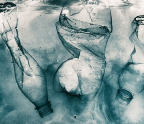
Many people assume that if a close family member has had cancer, they are doomed to follow in their footsteps. This simply isn't the case for every individual. According to the National Cancer Institute, “Inherited genetic mutations play a major role in about 5 to 10 percent of all cancers.”1
That means nine out of 10 cancer cases aren't genetic.
Gene expression can be modified by several lifestyle factors we can control. Changing your diet and exercise habits, reducing stress levels, bolstering health through nutritional supplements, getting enough sleep and detoxifying from environmental pollutants can go a long way toward preventing cancer in the first place.
That said, let us take a closer look at the three main causes of cancer—and what you can do to avoid them.
The main causes
If we knew the exact cause of cancer, we would likely be much closer to finding a cure. However, an abundance of scientific research is pointing us in the right direction.
By now, almost everyone is aware that smoking increases the risk of lung cancer. However, most people do not realize that more than 30 different cancer risk factors have been identified. These risk factors can be grouped into three major categories: toxins, infections (bugs)






